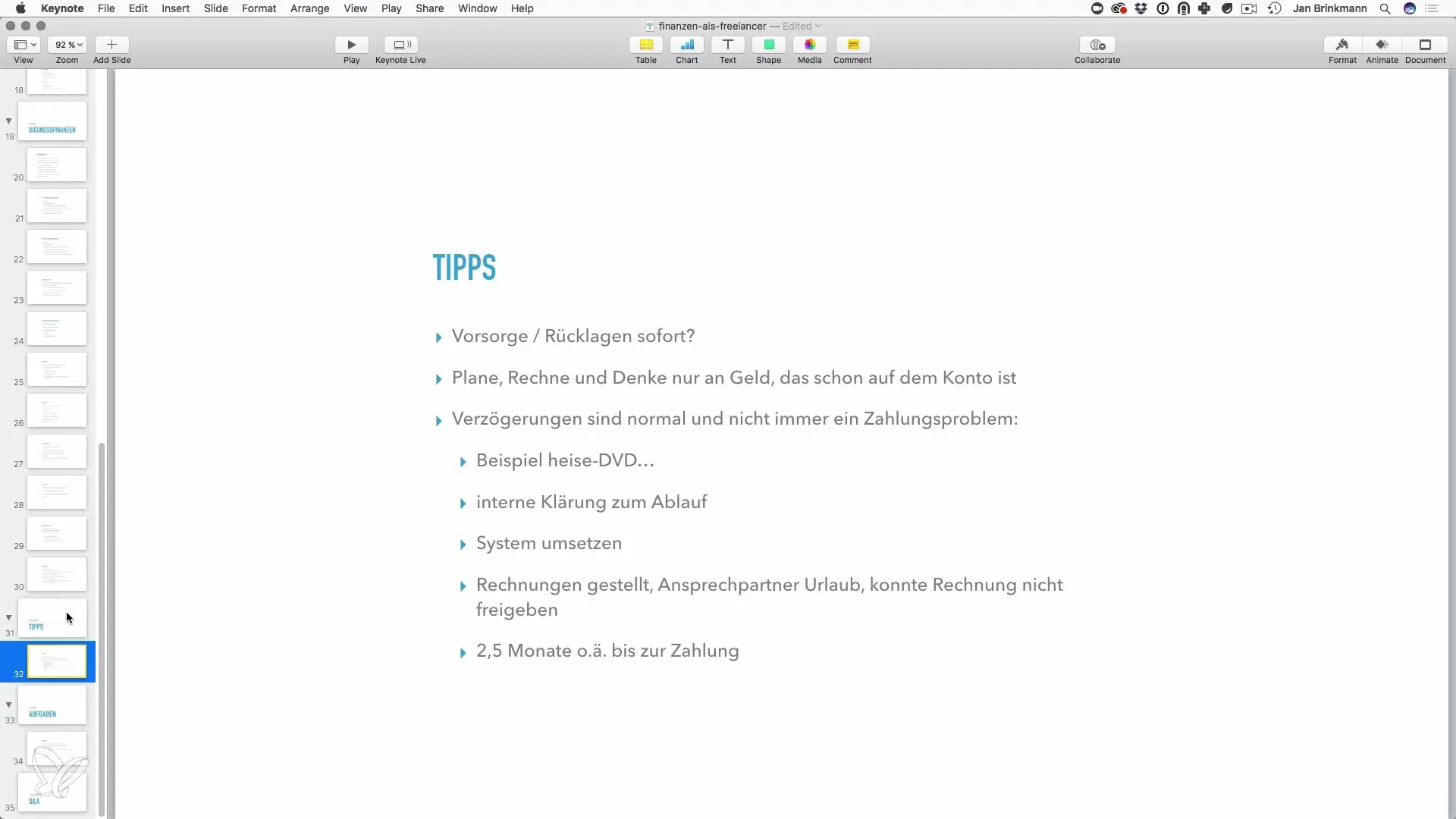Starting out as a freelancer means not only leading an exciting professional life but also managing your finances wisely and thoughtfully. Here are some additional tips that can help you establish yourself in self-employment. This guide highlights the most important aspects of financial planning and dealing with money so that you can recognize and master potential challenges early on.
Main Insights
- Early engagement with planning and reserves is essential.
- The management of money should always be realistic and cautious.
- Payment goals and delays should be accounted for to avoid financial pressure.
- A financial buffer is essential to remain capable of action during problematic times.
Building Financial Security and Reserves
It is understandable that at the beginning of your self-employment, you primarily focus on your current projects. Nevertheless, it is important to think about planning and reserves early on. When you are still employed, you have the advantage of approaching these considerations without the pressure of self-employment. You should take advantage of this relaxed starting situation to create a solid foundation and build reserves that can help you later.
One suggestion is to already set up an account during your employment where you regularly park a portion of your salary for unexpected expenses or dry spells. It is advisable to have at least three to six months’ worth of salary as reserves. This also applies when you are active as a freelancer. Once you start generating income, you should not stop building reserves during your self-employed phase.

Dealing with Money: Planning Realistically
A key aspect of your self-employment is the careful handling of financial resources. Make sure to plan only with the money that you already have in your account. Avoid the mindset that you can spend money now because payments from clients will come in the near future. Such considerations can turn out to be risky, especially when there are delays in payments.
You should make safe investment decisions and use only funds that are actually available to you. This applies, for example, to expenses like software or hardware that you need to perform your work. Plan to cover these investments with your current cash flow or use reserves that you have built earlier.
Payment Goals and Their Impact on Your Finances
The reality often is that clients' payments do not always arrive on time. If you work in the service industry, you may have to wait multiple times for the arrival of your invoice payments. This can have various reasons, such as internal accounting processes or the availability of personnel at your clients. Be aware that such delays are normal in the B2B world.
Take the time to plan for a buffer. This way, you can prepare for the possibility that time may pass before your invoice is settled. If, for example, you experience a financial bottleneck, you can rely on your reserves to cover your operating expenses. If your financial buffer is well filled, it can save you a lot of stress.
Flexibility in the Payment Process
It is not uncommon for important contacts in your client’s company to be absent due to vacation or illness. This can lead to invoices not being reviewed and approved in a timely manner. Therefore, you should always be prepared to respond to such uncertainties and possibly adjust the communication.
Keep in mind that such situations are not always negative. They give you the opportunity to evaluate the range of expected payment goals depending on the client relationship and possibly work with new payment modalities in the future that provide you with more security.
Practical Examples: My Path to Financial Security
To give you a practical impression, I would like to share an example from my own experience. Last year, I worked on a project that took several months. Invoicing and the subsequent payments dragged on for several months due to internal processes and absences.
In aggregate, it took nearly five months before I received the final payment for the services rendered. This meant that during this time, I had to rely on managing my reserves well and prioritizing important expenses to avoid liquidity bottlenecks.
Summary – Financial Strategies for Freelancers
Sustainable financial planning is essential for every freelancer. Early engagement with planning, reserves, and realistic handling of money can help you remain capable of action even in difficult times. Remember that clients’ payment goals can pose challenges and be flexible in your planning.
Frequently Asked Questions
What are recommended reserves for freelancers?At least three to six months of salary to cover unforeseen expenses.
Why is dealing with money so important?Realistic financial planning helps avoid financial bottlenecks and enables sustainable investments.
How do I deal with delayed payments?Plan a financial buffer to bridge gaps.
What is the best way to build reserves?Immediately set aside a portion of your income into a separate account to build reserves.


